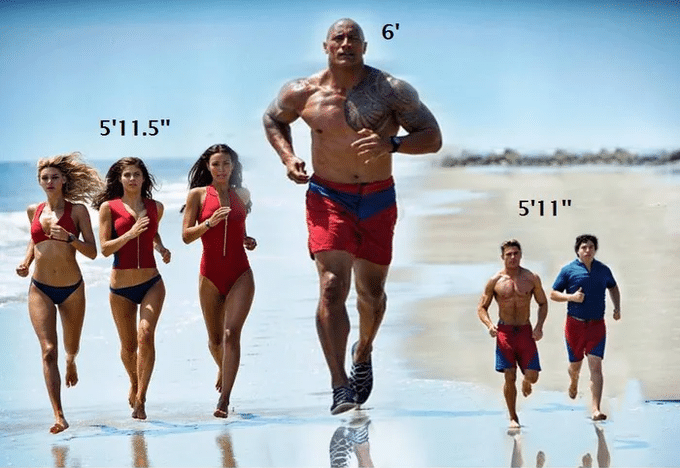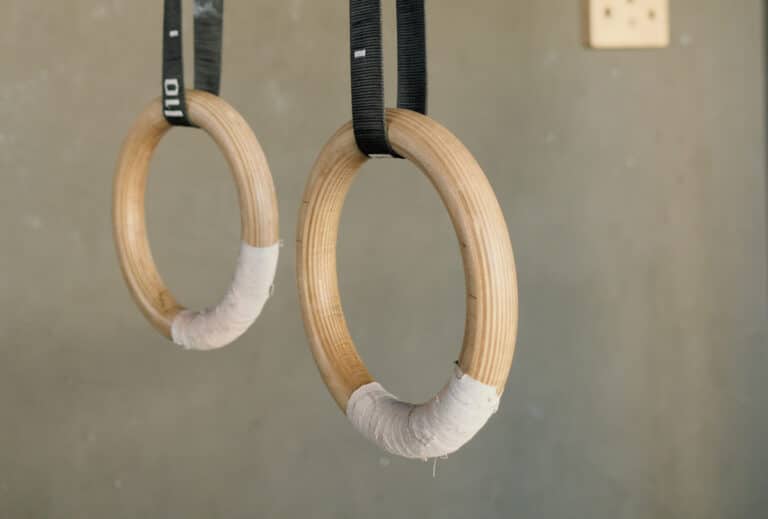What is a manlet? Here’s everything you need to know about the internet’s favourite trolling term
It’s 2021 and the internet stands more divided than ever. While one half tries their level best to normalise and redefine pejorative terms, the other half seems to be on a simultaneous quest to conjure up new ones. Trending across Reddit, YouTube and Twitter for the past 16 years is a controversial term rooted in the dating and fitness industry. From acceptable targeting to being dubbed “shrimp on steroids,” here’s everything you need to know about ‘manlets’.
What is a manlet?
A manlet (portmanteau of the terms ‘man’ and ‘midget’) is an internet slang referring to men of short stature. Now, there is no height set in stone to ‘qualify’ as a manlet. For some people, anyone under 6 feet is considered short whereas for others the bar may be at 5 feet 8 inches. This is one of the reasons why the term is opened up for wider interpretations.
Be it 5 or 6 feet, however, one factor makes the term concerningly unique: a manlet’s compulsion to ‘emphasise’ masculinity through weight lifting and bodybuilding. In this regard, the term first started appearing on fitness threads online—most notably on boards such as 4chan’s /fit/ (Health & Fitness) and other bodybuilding forums. According to Know Your Meme, the typical height for men to be labelled manlets is under 6 feet. Those who are 5 feet 11 inches tall are often called the “King of Manlets,” given the fact that it’s the highest achievable height before hitting the 6 feet cutoff.
“Considering the average height for a guy in America is about five nine this is idiotic,” commented a user on a Reddit post introducing manlets six years ago. In the Netherlands, the average height for males stands at 5 feet 11 inches. In this sense, would an average American man be considered a manlet on his holiday to the Netherlands? Height comparison memes further adds fuel to the fire as they intentionally over exaggerate two inch height differences—thereby depicting manlets much smaller than in reality.

Manlets and the dating pool
An intriguing 2013 study by Dutch psychologists Gert Stulp, Abraham Buunk, Robert Kurzban and Simon Verhulst concluded how men are taller than women in 90 per cent of relationships—a greater percentage than randomly pairing up people. The study also found women caring more about their height preferences than men, with a little over half of men listing height as a requirement. About 94 per cent women also refused to date a man shorter than themselves.
However, not all short men are considered manlets on the internet. “If a short man is happy being short and doesn’t try to hide it, they are not a manlet,” Grammarhow writes. In contrast, if they are constantly rejected by their love interests over their height and hence dedicate hours to the gym, they could be considered a manlet. “The logic is that even though they’re short, they will stand a better chance with women if they go to the gym and get some muscle.”
When used by women, the term ‘manlet’ is a way of saying “I know you’re muscular, but because you’re short, I have no interest in pursuing anything with you.” The term is used similarly to ‘beta male’ in reference to reproductive success.

“This is due to sexual selection,” an entry on Incel Wiki reads. “Women want to pass on the ‘fittest’ genes to their offspring.” The Wiki highlighted how females are the ‘selectors’ by carefully choosing which men they mate with. “They guard which genes get passed onto the next generation and which don’t.” The entry also added how an extremely short man has an extremely small dating pool.
“For every inch that a man becomes shorter, his dating pool becomes exponentially smaller. An extremely short woman has more options, because short girls are considered feminine and cute—and men are generally much less selective in their choice of sexual partners.”
Manlets and the heights of ‘acceptable’ trolling
Manlets are yet another subset of trolling that is neither built on the foundation of reason nor rationale. In addition to the height comparison memes are a slew of advice prompting them to “increase their height.” The most notable hacks include drinking gallons of whole milk, including stretches in their workouts and wearing incognito shoe heels or boots. A popular phrase in reply to manlets trying to defend, cover up or ‘compensate’ for their height is “When will manlets learn?”
So why was manlet conjured up as a term and why is it still being used everywhere from real-life gyms to virtual forums? It all boils down to the concept of ‘acceptable targets’. With more and more terms being reclaimed out of their age-old pejorative connotations—be it beauty brands with words like ‘lightening’ and ‘normal’ or TikTok subcultures redefining ‘bimbos’—the internet is shifting its focus towards those who they can ‘afford’ to laugh at without any major backlash or cancellation.
“Surely they will rage (also known as ‘manlet rage’), but since no one pays them any attention and finds it fine to mock them, no one cares,” a reply to the same Reddit post reads.
Same goes with the concept of ‘simps’ which is still used as an insult on some major Discord servers. Even though some of these words hit mainstream usage with a positive purpose, they have been increasingly dehumanised to label a certain feature or preference. Maybe it’s time to yeet both manlet and ‘lanklet’ (a term similar to manlet but aimed at tall people) out of our dictionaries entirely, maybe it’s time to reclaim and wear it as a badge of honour. Either way, manlets are still out there on the internet’s vocabulary—sometimes going as far as extending the insult into “shrimps on steroids.”





